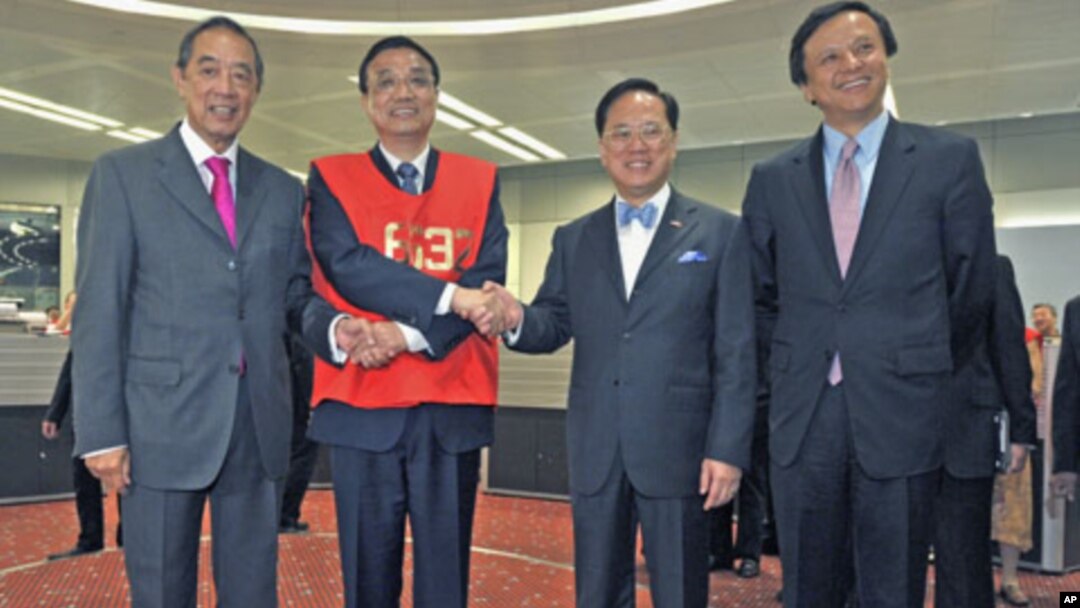Chinese Vice Premier Li Keqiang is on an official three-day visit to Hong Kong, where he is expected to attend a forum on the role the Special Administrative Region of China will play in the mainland’s future. Li’s arrival in the city is significant for other reasons, as well.
Li’s ceremonial arrival is yet another indication that the relatively unknown 56-year-old will succeed Premier Wen Jiabao next October after the Communist Party’s 18th congress.
Willy Lam, professor of history at the Chinese University of Hong Kong, said, “This congress is particularly important because President Hu Jintao and Prime Minister Wen Jiabao will have served their two five-year terms. Of nine members of the Politburo Standing Committee, China’s highest ruling council, seven will retire. So there will be a wholesale changing of the guard.”
Economic measures to bolster Hong Kong
Li announced several initiatives Wednesday to support the Hong Kong economy, whose growth has declined in successive quarters. They include a $3 billion quota for Hong Kong companies to invest in mainland securities and pilot projects for foreign banks to replenish their capital with yuan. The moves are seen as enhancing the Chinese currency’s global position as an alternative to the dollar.
Along with Wednesday’s sale of more than $3 billion of so-called “dim sum bonds” - which are yuan-denominated debt issued to foreign investors through the Hong Kong market - Li’s initiatives will help Hong Kong develop as a gateway for international investment in China, particularly the growing trade in its currency.
Hong Kong faces a growing wealth divide, however, as inflation hits a three-year high. Even the prosperous middle-class is struggling to make ends meet, and chief executive Donald Tsang saw his popularity fall to a new low last month.
Concerns about stability
Emily Lau, vice chairman of the Hong Kong Democratic Party, said, "If you look at the difficulties America, Europe and Japan are going through - this huge debt crisis - in Hong Kong we have a huge surplus. But we don’t use the money to alleviate disparity between rich and poor.”
Political analyst Lam said that Li is expected to remind Tsang in private meetings of the significance he attaches to maintaining social cohesion in this former British colony, which retains considerable political autonomy.
“There is an intimate connection between political development in Hong Kong and the mainland. Because of the massive contradictions in the Hong Kong economy, there might be instability, riots. Beijing is obsessed with stability in Hong Kong, partly because of this possible copycat effect,” said Lam.
Lam says that despite Li's liberal reputation, preserving stability remains his overriding task and likely will define his premiership should his elevation to the post be confirmed next year.
China's Likely Future Premier Visits Hong Kong

Chinese Vice Premier Li Keqiang (2nd L), wearing a floor trader's vest, poses with Hong Kong Stock Exchange Chairman Ronald Arculli (L), Chief Executive Charles Li (R) and Hong Kong Chief Executive Donald Tsang during his visit to the Hong Kong Stock Exch

